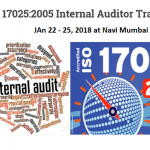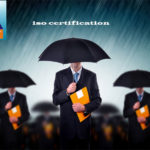ISO/TS 29001:2003 provides additional requirements to ISO 9001:2000 specifically intended for the petroleum, petrochemical and natural gas industries
For organisations working within the oil and gas industry, certification to ISO/TS 29001 represents a significant opportunity for standardisation and improvement. As a leading provider of management system certification and associated training services to the petroleum, petrochemical and natural gas industries, Lakshy Management Consultant Pvt. Ltd. is in an ideal position to provide services to this new technical specification.
How can ISO/TS 29001 benefit my organisation?
ISO/TS 29001:2003 provides additional requirements to ISO 9001:2000 specifically intended for the petroleum, petrochemical and natural gas industries. It is envisaged that it will become the common basis for the industry’s quality management systems requirements worldwide so helping to reduce or eliminate multiple assessments with the additional benefits of reduction in disruption to the business, associated paperwork and costs.
The new technical specification aims at the development of a quality management system that provides for continual improvement, emphasising defect prevention and the reduction of variation and waste in the supply chain and from service providers.
Â
Frequently Asked Questions relating to ISO/TS 29001:2003
Background
Categories A, B, C and D
Disclaimer
ISO/TS 29001 First edition was published on September 15, 2003, see ISO Press Release for details. ISO/TS 29001:2003 was prepared to provide supplemental requirements to ISO 9001:2000 Quality Management Systems – Requirements and, accordingly, includes the original text of ISO 9001:2000 unaltered and in its entirety as boxed text, while the supplemental requirements are outside the boxes.
ISO/TS 29001:2003 was prepared in cooperation with the American Petroleum Institute in a joint working group between ISO/TC67/WG2 with liaison from ISO/TC176/SC2, and the API SC18 Q1 Task Force. The original text of ISO/TS 29001:2003 unaltered and in its entirety has been adopted as the Quality Management System (QMS) within API Spec Q1 Seventh edition, June 15, 2003, Effective date December 15, 2003. API Spec Q1 also includes, as Annex A, the provisions for the API Monogram Program; this Program is proprietary to API and is not included in ISO/TS 29001:2003.
The questions and issues addressed here have arisen from various parts of the industry and the responses have been developed based on the best information available to the Management Committee (MC) of ISO/TC67 Materials, equipment and offshore structures for petroleum, petrochemical and natural gas industries, and have been endorsed by the TC67 MC for distribution to its members for information.
A brief discussion of the “infrastructure” relevant to ISO 9001 may help to clarify some of the terms and the issues relevant to ISO/TS 29001:
1 – If a Certification Body (CB) claims that it is competent to certify according ISO 9001 it can issue the certificates to any interested organization;
2 – If the CB is accredited by a National Accreditation Body (NAB) as an Accredited Certification Body (ACB) and as competent to certify according to ISO 9001 the certificate can show the NAB logo;
3 – If the NAB takes part in the Multilateral Recognition Agreement (MRA) of the International Accreditation Forum (IAF) it can readily be recognized by another NAB (inside IAF/MRA). In this case the certificates issued by the ACB can show the logo of the other NAB as well. So, a certificate can be issued in one country and exhibit the logo of the NAB of another country. This ensures that the certificate is “recognised” within that other country. This rule is intended to minimize multi-accreditation by the ACBs and reduce the costs of certification.
The “infrastructure” implied by [2] and [3] above is neither in place nor currently planned with respect to ISO/TS 29001.
Note that the term Registrar is sometimes used; the definition is the same as for Certification Body.
Categories A, B, C and D
The questions are divided into four categories as follows:
A ISO/TS 29001:2003 in the oil and gas industry
B Infrastructure for accreditation and certification
C Relationship to API and the Monogram Program
D Support from ISO and further information
|
Are there many organizations that have already started implementing the ISO/TS 29001:2003? |
|
| Â |
At this time, organizations implementing ISO/TS 29001 are those implementing API Spec Q1 Seventh edition. All the organizations that are known to have asked about ISO/TS 29001 are current Monogram Program or APIQR Q1 Registered organizations. However, several Certification Bodies are proposing ISO/TS 29001 certification schemes for organizations. |
|
 |
|
|
Will third party certification to ISO/TS 29001 become an expectation of the oil and gas industry? |
|
| Â |
Not necessarily; there is currently no overall industry expectation. Note: it is important to distinguish between customers who will ask for compliance and customers who may require third party certification. A customer who asks for compliance may accept a self declaration (that may also be tested by the customer’s own audits) in which case third party certification would not be expected. Note that compliance with the requirements of ISO/TS 29001, being identical to the QMS of API Spec Q1 Seventh edition, is required as part of the API Monogram Program. |
|
 |
|
|
How can an organization demonstrate that it meets the requirements of ISO/TS 29001? |
|
| Â |
By self-declaration, and/or by second party audit, or by achieving third-party certification. ISO/TS 29001:2003 was prepared to provide supplemental requirements to ISO 9001:2000 Quality Management Systems – Requirements and, accordingly, includes the original text of ISO 9001:2000 unaltered and in its entirety as boxed text, while the supplemental requirements are outside the boxes. The ISO 9001 requirements are assured as usual. Assurance of conformity to the additional requirements of ISO/TS 29001 can be through self declaration, through second party evaluation, or through third party assessment with or without certification. Also through the API Monogram Program (for a specific, limited product scope). |
|
 |
|
|
What is the added value of obtaining third party certification to ISO/TS 29001? |
|
| Â |
Organizations apply ISO Standards for Quality Management Systems because requirements there specified are key points consistently providing products that meet customer and regulatory requirements in the context of continual improvement. (Customers usually request at least an ISO 9001 certificate from their suppliers.) Customers from the Petroleum and Natural Gas Industries may now be interested to consider third party certification to ISO/TS 29001 as a key point for qualification of their product/service suppliers. A ISO/TS 29001:2003 quality certificate issued by a “credible†third party may permit an Organization to satisfy such needs of its customers, and be evidence of compliance to more than 30 extra quality system requirements above ISO 9001:2000 that are of particular concern to the petroleum, petrochemical and natural gas industry; although customers may continue to perform their own supplementary audits. |
|
 |
|
|
Is the IAF providing any information or services related to ISO/TS 29001? |
|
| Â |
No. See also B.2 below. |
|
 |
|
|
Are any national accreditation boards providing information or services related to ISO/TS 29001? |
|
| Â |
No. ISO/TS 29001 is developed for voluntary use within the petroleum, petrochemical and natural gas sector. No industry approach has been made to national accreditation boards (such as ANSI-RAB in the United States) however it is likely that if such a need arises in the future, it would be possible to establish appropriate services for accreditation of ISO/TS 29001 Certification Bodies in a manner similar to that already established for ISO 9001, ISO 14001 etc. |
|
 |
|
|
Are any Certification Bodies appointed for ISO/TS 29001? |
|
| Â |
No. There is no general “infrastructure” related to ISO/TS 29001. No Certification Bodies have been appointed, and there is no accreditation system in place with respect to ISO/TS 29001. See also B.2 above. |
|
 |
|
|
Who can, or will, provide third party certification to ISO/TS 29001? |
|
| Â |
Any Certification Body can offer and provide ISO/TS 29001 certification. Note: there is however currently no mechanism with respect to ISO/TS 29001 for accrediting Certification Bodies, for differentiating between Certification Bodies and/or for mutual recognition of certificates issued by different Certification Bodies. See also B.5 and B.6 below. |
|
 |
|
|
Will an ISO/TS 29001 certificate be recognised officially? |
|
| Â |
No. There is no mechanism in place or being planned for general recognition or acceptance by accreditation organizations, the IAF, or governments or regulators. There is currently no mechanism with respect to ISO/TS 29001 for accrediting Certification Bodies or for differentiating between Certification Bodies (see also B.3 above). But if a need for that arises from suppliers and Certification Bodies, this may change. At present, any certificates issued will not be within an official recognition system. Several Certification Bodies are offering certification to ISO/TS 29001 but there is currently no accreditation of these Certification Bodies with respect to ISO/TS 29001. |
|
 |
|
|
Will an ISO/TS 29001 certificate issued in one country be accepted in another country? |
|
| Â |
Yes if the customer so wishes. But because there is currently no system of national recognition, the question of acceptance by country, i.e. on a national basis, does not arise. It would be a company-to-company decision. See also B.5 above. |
|
 |
|
|
Are there specific requirements, additional to ISO 9001, for the training of external auditors? |
|
| Â |
No. There is currently no additional industry “infrastructure” related to ISO/TS 29001. Certification Bodies may have their own procedures and requirements. |
|
 |
|
|
Does an ISO/TS 29001 certification take the place of an API Monogram audit? |
|
| Â |
No. The API Monogram audit includes not only auditing of the Quality Management System (API Q1 Seventh edition QMS is identical to ISO/TS 29001:2003) but also the capability to deliver product to specification. A ISO/TS 29001:2003 Certificate would attest that the Organization is operating a Quality Management System according to requirements of ISO/TS 29001:2003. API Monogram provides evidence that: |
|
 |
|
|
When a company applies for an API Monogram License, will API reduce or eliminate the auditing of the Quality Management System if the company already has an ISO/TS 29001 certificate issued by another Certification Body? |
|
| Â |
No. API conducts an integrated audit of both the QMS and the capability to produce to specification, that is focused on the specific products that are to be within the scope of the License(s). API say that it is not possible to separate these out into two distinct audit components. |
|
 |
|
|
When a company applies for an API Monogram License, will API reduce or eliminate the auditing of the Quality Management System if the company already has an ISO/TS 29001 certificate previously issued by API? |
|
| Â |
Possibly. API say that API might be able to reduce the audit-days depending on API’s internal records of previous audits and the number of non-conformities. See also C.2 above. |
|
 |
|
|
How many audits are needed in order to satisfy the full requirements of the oil and gas industry? |
|
| Â |
One audit can cover both ISO/TS 29001 and ISO 9001, because ISO/TS 29001:2003 includes ISO 9001:2000 unaltered and in its entirety. Note: if the meaning is “ISO/TS 29001 plus API Monogram” then it is possible to achieve both via a single audit only if the audit is performed by API, remembering that only API can provide the audit for the API Monogram license. See also C.2 and C.3 above. |
|
 |
|
|
What is ISO doing in support of ISO/TS 29001? |
|
| Â |
ISO has provided the processes for the development of ISO/TS 29001, within ISO Technical Committee 67 (TC67) in which stakeholders have contributed to the consensus document. ISO publishes and sells the document, and makes it available for national adoption by its member bodies (national standards bodies). ISO has issued a Press Release, and articles in some it its magazines (e.g. “ISO/TS 29001 set to become oil and gas industry’s unique QMS standard” in ISO Management System magazine, July-August 2004). ISO is not providing any “infrastructure” support, or advice on implementation. |
|
 |
|
|
From where is further information about ISO/TS 29001 available? |
|
| Â |
From Organizations implementing ISO/TS 29001, from customers (e.g. oil companies) asking for its implementation and from Certification Bodies prepared to provide certification to it. However, ISO/TS 29001 is a tool for customers to have additional assurance regarding the QMS of their manufacturers/suppliers, and therefore the requirements and expectations of each customer will need to be understood. See also D.1 above. |
|
 |
|
|
Where can interpretations on the content of ISO/TS 29001 be obtained? |
|
| Â |
Use the Interpretations Process of ISO/TC67, see Annex G of TC67 document N435 TC67 Policies and procedures. |
|
 |
|
|
From where is further information about the ISO 9000 / ISO 29001Â family of standards available? |
|
| Â |
Contact Lakshy management consultant pvt. ltd. at info@lakshy.com or call our 24 hours customer care at +91 9821780035 for ISO 29001 / 9001 certificate for your company. |
Â






